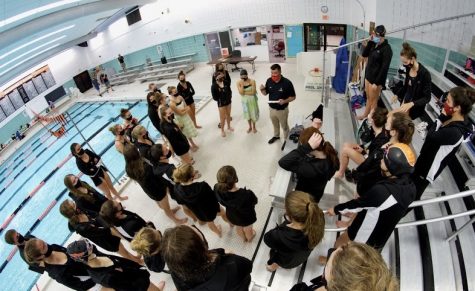Smartwater has fewer electrolytes than tap water
According to Glaceau, the Coca-Cola-owned bottler that produces Vitaminwater and Smartwater, “Glaceau products are specially formulated to help people on the go feel better, perform better and live healthier lives through better hydration.” The purity of the water and added electrolytes, the company says, helps one stay happily hydrated throughout the day.
Nonsense. Smartwater is essentially purified water with a small amount of added electrolytes, and the bottom line is this: Smartwater contains less electrolytes than most tap water, and the vapor distillation used to purify the water is no more effective (or even less effective) than the methods used by other major bottlers. In the physiological sense, electrolytes are the body’s essential ions, of which the most important are sodium, potassium, magnesium, chloride and calcium.
Smartwater contains no sodium, 10 milligrams per liter of potassium, 15 milligrams per liter of magnesium, no chloride, and 10 milligrams per liter of calcium. Average tap water contains twice that much, and most spring or mineral waters, such as Evian or Perrier, contain at least 50 to 100 milligrams of each.
Electrolyte content aside, the only individuals who actually need to ingest a significantly larger amount of electrolytes than that found in tap water are those who exercise rigorously for at least one or two hours. Along with expelled sweat, athletes, for example, lose a significant amount of electrolytes after a vigorous workout. Those who need the electrolytes will need something actually exercise-grade, as over 1000 milligrams of sodium and chloride per liter of sweat can be lost, as well as 100 milligrams each of potassium, magnesium and calcium, can be lost from heavy perspiration.
Gatorade contains over 350 milligrams per liter of sodium, 150 milligrams per liter of potassium, and 135 milligrams per liter of chloride. It only has 15 milligrams per liter of magnesium and 9 of calcium, but that’s still much improved over “electrolyte-enhanced” Smartwater, even the one that comes with a sport cap. Gatorade was formulated by medical researchers at the University of Florida, while Smartwater conceived by J. Darius Bikoff, an entrepreneur who tried to find a way to differentiate his water from that of other bottlers. Along the same lines, Bikoff conceived Vitaminwater and Fruitwater.
Glaceau also asserts that Vitaminwater and Fruitwater are “enhanced with a touch of pure crystalline fructose, a high quality natural sweetener that is the same as found in fruits and vegetables.” There currently is not sufficient evidence to suggest that crystalline fructose, as compared to high fructose corn syrup, is any better for one’s health. Both types of sweeteners contain fructose as their primary ingredient. The only difference is that crystalline fructose is 98% pure, while high fructose corn syrup is only about 55% fructose. Since fructose is about 1.7 times as sweet as table sugar, somewhat less sweetener can be used for the same amount of sweetness.
Crystalline fructose shaves a few calories off of a drink, but otherwise still is just sugar. As to “found in fruits and vegetables,” crystalline fructose is derived from the same source the high fructose corn syrup Both are refined sugars, and, arguably, crystalline fructose is even more highly refined that high fructose corn syrup.
It all begs the question: why do Glaceau products account for at least one-fifth of beverage revenue in North America? How did Glaceau become a multibillion-dollar franchise? It’s all about the quirky, creative attitude with which Glaceau has presented itself. This, combined with the attractive, contemporary design of its packaging and advertising campaign featuring celebrities, most notably Jennifer Aniston, Glaceau has successfully marketed its beverages as an essential lifestyle product. And Glaceau is only one of the many other brands of enhanced or flavored waters that simply don’t stack up. Phony waters are simply another facet of capitalistic Americana. Buyer, beware.
Your donation will support the student journalists of Ames High School, and Iowa needs student journalists. Your contribution will allow us to cover our annual website hosting costs.

























